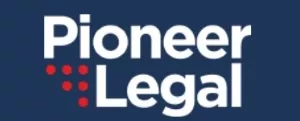- within Litigation and Mediation & Arbitration topic(s)
- in United States
- within Food, Drugs, Healthcare, Life Sciences and Insurance topic(s)
- with readers working within the Automotive and Insurance industries
Madras HC: Section 77-A of the Registration Act, 1908 declared unconstitutional
In M. Kathirvel ("Petitioner") v. The Inspector General of Registration and Ors. ("Respondent"), [WP.Nos.10291/2022 etc batch] the Hon'ble High Court of Madras ("Madras HC/ Court") struck down Section 77-A of the Registration Act, 1908 ("Act"), as unconstitutional, inter alia on account of the same being ultra vires of the Act and Article 14 of the Constitution.
FACTS
Section 77-A of the Act empowered the District Registrar to cancel the registration of a document that was made in contravention of Sections 22A and 22B of the Act. Section 22-A of the Act gives the government the power to declare that the registration of certain documents is against public policy whereas Section 22B of the Act gives sub-registrars the power to refuse to register forged documents and other documents prohibited by law.
Pursuant to the enactment of Section 77-A of the Act, several writ petitions were filed questioning the authority and jurisdiction of the District Registrars to hold enquiry under the said section, with reference to registered documents. Conversely, litigants who have filed petitions/ applications before the District Registrars for cancellation of instruments under Section 77-A, had filed writ petitions before the Madras HC, seeking directions to be issued to the District Registrar for consideration of their representations in favour of cancellation of such instruments.
The present judgment, therefore, arises from a batch of such writ petitions, challenging the constitutional validity of inter alia Section 77-A of the Act, as introduced by Registration [Tamil Nadu Second Amendment Act] 2021 [Act 91 of 2022] ("Amendment") and its retrospective operation.
ISSUE
Whether Section 77-A is contrary to the scheme of the Act and liable to be struck down as unconstitutional?
FINDINGS
At the outset, the Madras HC determined that the Amendment adding Section 77-A exceeded the intended scope, objective, and purpose of the Act. The Act is intended solely as a procedural law to manage the registration of documents and the associated formalities, not as a substantive law that grants the sub-registrar or District Registrar the authority to investigate the rights of a document's executant or invalidate related transactions.
The Madras HC further criticized Section 77-A of the Act for giving District Registrars excessive and unchecked authority to cancel property registrations. The Court opined that although the section might benefit innocent landowners, it poses a risk of causing substantial hardship and irreparable harm to legitimate property owners.
Further, the Madras HC observed that Section 77-A conferred excessive quasi-judicial power on District Registrars, who were not qualified or legally adept to adjudicate disputes on property title. In any event, even if District Registrars were to cancel the registration of documents under Section 77- A, aggrieved parties could still challenge these decisions in civil courts, which will raise concerns about the effectiveness of the provision and the competence of the decision-making process. Thus, the Court noted that Section 77-A attempts to create a parallel forum to the judiciary, granting arbitrary and excessive power to the executive that is prone to favoritism and is in excess to its competent authority.
Applying the aforesaid rationale, the Madras HC held Section 77-A of the Act to be unconstitutional for being violative of Article 14 of the Constitution. In this regard, the Court further noted that Section 77-A is incapable of being read down to be saved from being declared as unconstitutional.
CONCLUSION
Section 77A of the Act sought to side-step the provisions of the Specific Relief Act, 1963, which provides a remedy to a person who desires to challenge a registered document. A registered document may be cancelled by filing a suit before a civil court and following the process set out under the Code of Civil Procedure, 1908. This legal process decides complicated issues on facts and law resulting in serious legal implications affecting the rights of parties. It would be dangerous to delegate this power and process to an executive authority such as the District Registrar, who is not equipped/qualified to deal with such complex matters. In fact, Section 77A sought to usurp the power vested with the judiciary. Granting such powers to an executive authority would, more often than not, lead to travesty of justice rather than seeking to do justice. Thus, the Court rightly held such a provision to be unconstitutional and struck it down.
The content of this article is intended to provide a general guide to the subject matter. Specialist advice should be sought about your specific circumstances.



